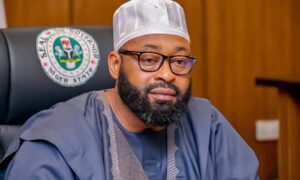BY MARK LONGYEN
For decades, communities in the North-Central region have endured poor roads, abandoned farmlands, and the scars of violent conflicts that displaced thousands of families.
From the flooding of villages in Niger to the violent attacks in Benue and Plateau, many residents have long felt trapped in a cycle of neglect.
Now, the recent creation of the North Central Development Commission (NCDC) by President Bola Tinubu has raised fresh hopes that these challenges may finally receive the sustained attention they deserve.
Analysts and stakeholders say the new commission is a long-overdue political and developmental masterstroke.
They argue the commission offers a pathway to combat insecurity, economic hardship, and environmental decline in a resource-rich region that continues to rank among Nigeria’s most neglected.
The North-Central, which comprises Plateau, Benue, Nasarawa, Kogi, Kwara, Niger, and the Federal Capital Territory, is home to about 28 million people, roughly 12 per cent of Nigeria’s population.
Yet, its vast potential has remained largely untapped. Over the past two decades, Nigeria has continuously resorted to creating regional development commissions as institutional vehicles to tackle localised crises.
For instance, the Niger Delta Development Commission (NDDC), established in 2000, was designed to address decades of underdevelopment, oil spills, and militancy in the oil-rich Niger Delta.
In spite of challenges of corruption and mismanagement, it has recorded some infrastructural interventions such as road networks, scholarship schemes, and health projects.
Similarly, the North-East Development Commission (NEDC), created in 2017, was born out of the devastation caused by the Boko Haram insurgency.
It has since rolled out resettlement programmes for Internally Displaced Persons (IDPs), rebuilt schools and health facilities, and invested in agriculture and renewable energy to revitalise livelihoods.
In comparison, the newly created NCDC, established in 2024, covers six north-central states and the FCT with an estimated population of 28 million people.
Its take-off budget of N140 billion in 2025 is targeted at infrastructure, agriculture, solid minerals, IDP resettlement, ecological restoration, and security.
By contrast, the NEDC, with a population coverage of about 26 million people across six states, had a N55 billion take-off fund in 2019, which rose to N146 billion in 2023.
The NDDC, covering nine Niger Delta states with over 31 million people, began with a N100 billion allocation and has since expanded its funding, focusing largely on infrastructure, environmental remediation, and human capital development.
The NCDC, domiciled under the Ministry of Regional Development, has been tasked with reconstructing infrastructure, providing healthcare and education, tack- ling ecological degradation, and fostering multi-sectoral growth.
Its take-off budget of N140 billion in the 2025 fiscal year signals strong political commitment.
Beyond physical infrastructure, the commission also carries a peace-building mandate.
For a region scarred by banditry, terrorism, and illegal mining-related conflicts, this responsibility is as critical as road construction or agricultural modernisation.
With its management board now inaugurated, the NCDC is headed by Dr Cyril Tsenyil, a distinguished chartered accountant and former Accountant-General of Plateau, as Managing Director.
He is joined by Cosmas Akyhir (Chairman, Benue), Princess Atika Ajanah (Executive Director, Projects, Kogi), and other representatives from Kwara, Nasarawa, and Niger states.















